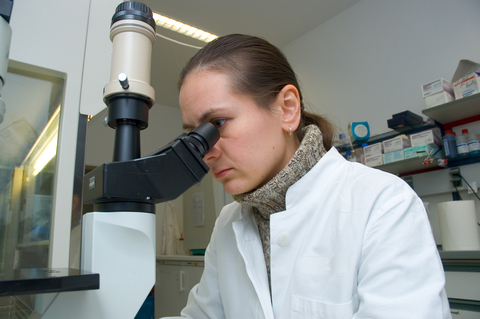Gene mutation can cause brain malformation in children

Researchers from Cardiff University and Université Libre de Bruxelles have identified how the function of a key gene significantly impacts nerve stem cell growth, and how it can lead to abnormal brain development in unborn babies (Cardiff University, 2017).
The new research, published in PNAS, reveals a pivotal role for the Dmrta2 gene in regulating the division of cells and the production of specialised cells.
This discovery shows that the Dmrta2 gene mutation, if inherited from both the mother and father, leads to a form of brain malformations called lissencephaly, a rare nervous system disorder in which a baby’s brain is not fully developed. This condition occurs in the second or third trimester, and leaves the child with a small and smooth brain as it prevents the development of brain folds (gyri) and grooves (sulci), which are needed for language skills and learning.
Professor Meng Li from Cardiff University said “Dmrta2 is part of the machinery responsible for gauging if enough cells are being produced for an optimally balanced and developed brain. It ensures the brain’s stem cells proliferate at appropriate time windows during foetal development and generate sufficient numbers of brain stem cells…Without this gene, nerve stem cells would switch the cell division model prematurely to making specialised brain cells (neurons) with detrimental consequences.”
Researchers genetically mutated the Dmrta2 gene in embryonic stem cells to examine the impact of too much or too little protein levels on brain development. The team then examined the effect of these changes on laboratory-created nerve cells, showing a direct link between Dmrta2 mutation and the causes of microcephaly (a type of lissencephaly).
Lead researcher, Dr Fraser Young, said “Without the Dmrta2 gene maintaining the delicate balance between neurogenesis and cell cycle progression, brain development is altered. Errors in nerve stem cell fate decisions may contribute to other neurodevelopmental conditions such as autism and learning difficulties. If we can identify why some children are potentially predisposed to nurturing neurodevelopmental disorders, we will be much better placed to look at ways of effectively treating or preventing such conditions from occurring.”
The research is funded by the UK Medical Research Council (MRC) and Cardiff University’s Neurosciences and Mental Health Research Institute (NMHRI), with credit to Cardiff University’s School of Biosciences, ULB Institute of Neuroscience (UNI), and Université Libre de Bruxelles (ULB).








